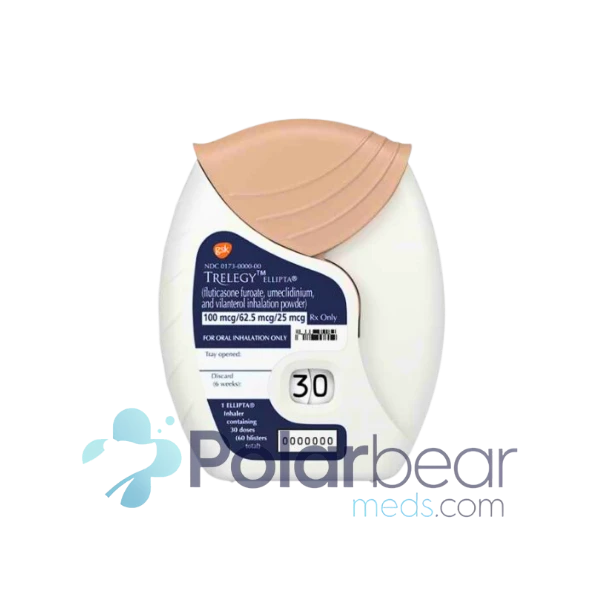
Understanding Colace: Dosage, Adverse Effects, and Side Effects of Docusate
HOME | DYSMOTILITY | SIDE EFFECTS OF COLACE (DOCUSATE)
If you’re considering using Colace to ease your constipation, be aware of the following side effects: abdominal cramping and diarrhea. These effects are typically mild and short-lived. However, watch for any unexpected or severe reactions and contact your healthcare provider if needed.
Using Colace long-term without medical supervision, especially if you have a history of intestinal blockage, isn’t recommended. If you’re pregnant or breastfeeding, consult a healthcare professional beforehand. Prioritize your well-being by staying informed about potential outcomes and making the best decisions for your health.
Key Takeaways: Side Effects of Colace
- Common side effects of Colace include abdominal cramping, diarrhea, throat irritation (liquid or syrup forms), and gastrointestinal cramping and discomfort.
- Serious side effects such as severe abdominal cramping, persistent diarrhea, signs of allergic reaction, or any other unexpected or concerning symptoms should be promptly reported to a healthcare provider.
- Long-term use of Colace should be monitored for potential long-term effects, and the maximum dosage should be observed. Consider using the liquid form and be cautious of becoming dependent on stool softeners. Seeking medical advice and interacting with healthcare professionals is important.
- Patients with intestinal issues should monitor their use of Colace for potential gastrointestinal side effects. It is commonly used by patients with intestinal issues, but consulting a healthcare provider for guidance and reporting any unexpected or severe reactions is advised. Caution should be exercised when using this medication.
Common Side Effects of Colace
When taking Colace, you may experience abdominal cramping and diarrhea. These side effects are generally mild and temporary, but it’s important to report any unexpected or severe reactions to your doctor. If you notice any rectal bleeding, allergic reactions, or persistent discomfort, seek medical attention immediately. It’s crucial to use Colace as directed and not for long-term use without consulting a healthcare professional. If you have a history of intestinal blockage or impaction, it’s especially important to exercise caution when using this medication.
If you experience throat irritation while using the liquid or syrup forms of Colace, discuss this with your doctor. Additionally, be aware of less common but serious side effects such as rectal bleeding and potentially deadly allergic reactions. Gastrointestinal cramping and discomfort in the stomach area are also common gastrointestinal side effects of Colace. If you notice any rash or metabolic abnormalities like hypomagnesemia, it’s important to consult your healthcare provider promptly. Always keep your doctor informed about any side effects or concerns related to your use of Colace.
Abdominal Cramping
If you experience abdominal cramping while taking Colace, report this symptom to your healthcare provider. Abdominal cramping can be a potential side effect of Colace. If the cramping becomes severe or persistent, follow these key points:
Consult Your Doctor: If you experience severe or persistent abdominal cramping while taking Colace, consult your doctor for medical advice.
Sudden Change in Bowel Movement: Severe abdominal cramping with a sudden change in bowel movements should be reported to your healthcare provider.
Allergic Reaction: If you experience abdominal cramping along with symptoms of an allergic reaction (rash, itching, swelling, dizziness, or difficulty breathing), seek medical help immediately.
Serious Side Effects: While abdominal cramping is a common side effect of Colace, if it becomes severe or is accompanied by other serious symptoms, consult your healthcare provider for proper evaluation and management.
Diarrhea
Experiencing diarrhea while taking Colace may indicate a potential side effect of the medication. Promptly report this to your healthcare provider. Diarrhea is a common side effect of using Colace stool softener (docusate), especially at a higher dosage. If you notice a change in your bowel habits, such as an increase in loose or watery stools, seek medical advice. Here’s a table to help you understand potential side effects and what to do:
| Side Effect | What to Do |
|---|---|
| Diarrhea | Call your doctor for guidance |
| Change in Bowel Habits | Seek medical advice about the change in your bowel habits |
| Abdominal Cramping | Report severe or persistent cramping to your healthcare provider |
| Dosage Adjustment | Consult your doctor if you suspect you are taking too much Colace |
If you experience diarrhea while taking Colace, reach out to your healthcare provider for guidance. Also, seek medical advice promptly if you notice any other unexpected or severe side effects.
Mild and Temporary Effects
You may experience mild stomach discomfort as a temporary effect of taking Colace. This is a common and usually short-lived side effect that typically resolves on its own. However, if you have any concerns about the effects of Colace, it’s important to consult your healthcare provider to ensure that the medication is suitable for you. Here are some important points to consider about the mild and temporary effects of Colace:
Mild stomach discomfort is a common and temporary effect of Colace.
If you experience any discomfort, it is advisable to consult your healthcare provider to ensure that Colace is safe for you.
It’s essential to be aware of the complete list of possible side effects and contact your doctor right away if you notice any unusual or severe symptoms.
In case of accidental ingestion of a higher dosage of Colace stool softener, call a poison control or your local poison control center immediately to avoid the risk of serious medical issues.
Always prioritize your health and well-being, and don’t hesitate to seek guidance from your healthcare provider if you have any concerns about the effects of Colace.
Reporting Serious Side Effects
Reporting Serious Side Effects
After experiencing any severe reactions to Colace, promptly report them to your healthcare provider to ensure proper evaluation and management. Serious side effects may include:
- Severe abdominal cramping
- Persistent diarrhea
- Signs of an allergic reaction such as rash, itching, swelling, severe dizziness, or difficulty breathing
- Any other unexpected or concerning symptoms
It is crucial to inform your doctor or pharmacist about any adverse reactions to Colace. You can report these side effects to the FDA by calling 1-800-FDA-1088 or by visiting their website.
If you are uncertain about the severity of your symptoms, do not hesitate to seek medical attention. Discuss any concerns about potential side effects with your healthcare provider before starting Colace.
If you are pregnant, planning to become pregnant, or breastfeeding, inform your healthcare provider because this medication may pass into breast milk and its effects on a nursing infant are not well-established.
Be cautious about potential drug interactions and always consult your doctor before taking any new medications.
Long-Term Use Caution
Monitor your use of Colace for potential long-term effects, as prolonged use without medical supervision may lead to electrolyte imbalance and dehydration.
Be aware of the maximum dosage for Colace, and do not exceed it without consulting a healthcare professional.
Consider using the liquid form of Colace, as it may be easier to adjust the dosage and may reduce the risk of side effects associated with the tablet form.
Be cautious about becoming dependent on stool softeners, as long-term use may lead to the body relying on them to have a bowel movement.
Stay informed and seek medical advice to ensure your safety and well-being when using Colace. Regularly monitor your use and be mindful of any serious symptoms that may arise from prolonged use. Interact with healthcare professionals to prevent dependence on Colace.
Patients With Intestinal Issues
Patients with intestinal issues should monitor their use of Colace for potential gastrointestinal side effects. Colace is a stool softener commonly used to treat occasional constipation in individuals with intestinal issues. Possible side effects include stomach pain, diarrhea, and cramping. Use caution when taking other medications that are also stool softeners in combination with Colace.
Consult your doctor or pharmacist for potential interactions. If you have a history of allergic reactions to medications or are pregnant or breastfeeding, seek advice from a healthcare professional before using Colace. If you miss a dose, do not double the dose. Take the missed dose as soon as you remember, or skip it if it is almost time for the next dose. Always consult your healthcare provider if you have concerns about using Colace for your intestinal issues.
Colace Side Effects During Pregnancy
1. Lactation Risk Data: It is unknown whether Colace passes into breast milk, so consult a healthcare professional before using it while breastfeeding.
2. Healthcare Consultation: Before taking Colace during pregnancy, consult a healthcare professional to evaluate the potential risks and benefits.
Constipation is common in pregnancy. Stool softeners, such as docusate sodium (Colace) and docusate calcium (Surfak), moisten the stool and make it easier to pass. These products are unlikely to harm a developing baby because their active ingredient is only minimally absorbed by the body.
https://www.mayoclinic.org/healthy-lifestyle/pregnancy-week-by-week/expert-answers/pregnancy-constipation/faq-20058550#:
3. Health Canada Recommendations: Health Canada advises pregnant women to use caution when taking Colace and consult a healthcare professional for guidance.
4. Allergic Reactions: Pregnant women should be vigilant for any signs of allergic reactions when using Colace, and seek immediate medical attention if any occur.
Be mindful of the potential side effects of Colace during pregnancy and always seek medical advice before using any medication, especially a stool softener, during this critical period.
Colace (Docusate) During Breastfeeding
When considering the use of Colace (docusate) during breastfeeding, consult with your healthcare provider to ensure the safety of your infant. Limited lactation risk data were available. It is crucial to seek medical advice before using this stool softener while breastfeeding. Unknown whether Colace passes into breast milk. Discuss with your healthcare provider to make an informed decision.
Before using any medication while breastfeeding, including Colace, inform your healthcare provider. They can provide guidance based on your circumstances and the health of your infant. Consulting a pharmacist can help you understand the potential effects of Colace on breastfeeding and whether alternative medications or treatments may be more suitable.
Consider the potential side effects of Colace while breastfeeding, such as abdominal cramping and diarrhea. Monitor for any adverse effects in your infant and seek medical attention promptly for any unexpected or severe symptoms.
Healthcare Professional Consultation and Colace Dosing
Healthcare Professional Consultation and Colace Dosing
Breastfeeding while using Colace: Consult your healthcare provider for guidance on dosing and potential effects on your infant.
Key points to discuss with your healthcare provider:
Potential side effects of Colace and how to manage them.
Appropriate dosage of Colace for your specific condition and age, under the supervision of a healthcare professional.
Possible drug interactions with other medications you are taking.
Proper disposal of any unused or expired Colace medication, in adherence to FDA guidelines for safety.
Your healthcare provider and pharmacist can provide personalized advice based on your medical history and current health status. Seek their guidance for understanding the effects of Colace and its safe usage.
Constella contains the active ingredient linaclotide and is prescribed to address the symptoms of moderate to severe irritable bowel syndrome (IBS) with constipation in adult patients.
Frequently Asked Questions
What Happens if You Take Colace every day?
If you take Colace every day, you may experience stomach cramps and discomfort. It’s important to consult a healthcare professional if you encounter unexpected or severe side effects. Long-term use should be supervised by a medical professional.
What to Avoid When Taking Colace?
When taking Colace, avoid long-term use without medical supervision. Use caution if you have a history of intestinal blockage or impaction. Consult a healthcare professional before using Colace during pregnancy or breastfeeding.
Can Stool Softeners Cause Side Effects?
Yes, stool softeners like Colace can cause side effects such as abdominal cramping and diarrhea. It’s important to report any severe or unexpected effects to your healthcare provider. Use with caution and seek medical advice if needed.
How Many Days in a Row Should You Take Colace?
You should take Colace for a maximum of 1 week without doctor’s instructions to prevent overuse and serious medical problems. If symptoms don’t improve after 72 hours, contact a doctor. Be cautious and seek medical advice if pregnant or breastfeeding.
Choose your platform, share this story!
Facebook Twitter LinkedIn Pinterest



















